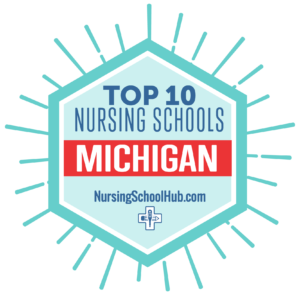
The best Michigan nursing schools have programs for new nurses and nurses returning to school that are affordable and accredited. There are lots of schools out there where you can get a nursing degree or certificate. Part of picking the best schools for nursing in Michigan is doing the research on all the schools that interest you, and part is really understanding what it is you want from the program. The best schools for nursing in Michigan are ones that meet your needs as a student.
The Michigan Dept of Health and Human Services says there is a shortage of nurses now in Michigan, but by 2030 that need should level out and there will be fewer nurse jobs in Michigan. The medical field is growing as baby boomers get older and need more medical care. Families are also growing, and that should add to Michigan nurse jobs as well. There are many specialties to consider among Michigan nurse jobs. A specialty may limit you to an area of nursing. However, there are Michigan nursing jobs available somewhere in your area of expertise.
How We Ranked the Best Nursing Schools in Michigan
Featured Programs
To rank the best nursing programs in Michigan, the editors at Nursing School Hub focused on accredited, trustworthy colleges and universities. Programs are ranked for factors having an effect on students’ careers, including cost, student satisfaction, and a variety of programs.
1. University of Michigan, Ann Arbor

The Nursing program at the University of Michigan, Ann Arbor, offers four nursing degree programs that include a BSN, MSN, DNP, and PhD. The nursing school is one of the first established in the United States and features a research department. The BSN degree program teaches students how to become effective nurses on a practical level by teaching the social and biological sciences and trains them to be supportive of patients through the humanities. Global nursing opportunities are offered to students who want to broaden their nursing skills and experiences.
The University of Michigan, Ann Arbor (UM) is a public flagship research university with a sea-grant and space-grant affiliation and is part of the Michigan public university system. The school enrolls over 46,000 students each academic year and offers over 200 undergraduate majors, 90 master’s degrees, and 100 doctoral programs. The school’s athletics teams participate in the NCAA Division I – Big 10 Conference.
Programs: BSN, MSN, DNP, PhD
2. Michigan State University

Michigan State University features a College of Nursing that offers multiple degree pathways for both new students to nursing and working professionals who want to earn higher degrees. The programs include: BSN, accelerated second degree BSN, RN to BSN, and a pre-nursing program for high school students. Students learn standards that help them pass the NCLEX-RN upon graduation. The school offers a study abroad program to England is available each academic year.
Michigan State University (MSU) is a public flagship land-grant research university that features a sea-grant and space-grant affiliation and is part of the Michigan state university system. A total of 129 undergraduate degree programs in 81 majors are offered at MSU in 23 fields of study. Over 45,000 students attend each academic year which gives the school the seventh largest student body in the U.S. The school’s athletics teams participate in the NCAA Division I – Big Ten conference.
Programs: BSN
3. Wayne State University
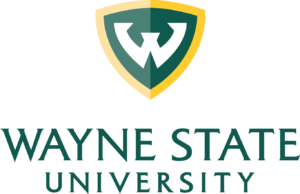
Wayne State University College of Nursing offers nursing programs that include BSN, MSN, DNP, PhD, and a graduate certificate. Students who want to earn their BSN have multiple pathways available to them that include a traditional 4-year program, direct admission for freshmen, a second career or degree for students who have a bachelor’s, a BSN for veterans, and an RN to BSN program. The school places an emphasis on teaching students how to work with urban communities that are at a disadvantage when it comes to healthcare. U.S. News and World Reports have ranked the DNP and MSN in their list of the best grad schools.
Wayne State University (WSU) is a public research university and is the third-largest university in the Michigan public university system. WSU has 13 schools and colleges that include business, engineering, education, nursing, pharmacy and health sciences, information sciences, law, social work, fine, performing, and communication arts. The school’s athletics teams participate in the NCAA Division II – GLIAC conference.
Programs: BSN, MSN, DNP, PhD
4. Western Michigan University

The Bronson School of Nursing at Western Michigan University offers degree programs that include RN to BSN, BSN, and MSN. The program trains students to become highly effective in applying their nursing skills to patients and providing compassionate care for patients at all stages of life. Students learn in state-of-the-art classrooms and labs and study the latest healthcare techniques and skills. Additionally, they participate in nursing research. Furthermore, a low student-to-teacher ratio enables students to learn more effectively and create a relationship with their teachers for the best possible educational outcome.
Western Michigan University (WMU) is a public research university with a space-grant affiliation and is part of the Michigan public university system. The school offers 147 bachelor’s degrees, 73 master’s degrees, 30 doctoral programs, and one specialist degree. It also features an aviation school with a fully functional airport. The school’s athletics teams participate at the NCAA Division I level in the MAC and NCHC conferences.
Programs: BSN, MSN
5. Grand Valley State University
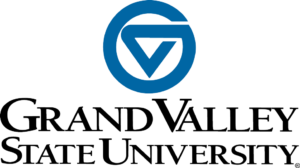
The Kirkhof College of Nursing at Grand Valley State University offers nursing programs that include a BSN, MSN, and DNP. The program teaches students how to become effective and compassionate nurses. These nurses can lead when needed, improve patient outcomes, care for a diverse population of patients, and efficiently interact with other healthcare professionals. The school offers outstanding teaching, service, practice, and also scholarship. In addition, the program has accreditation from the Commission on Collegiate Nursing Education (CCNE).
Grand Valley State University (GVSU) is a public university that features a space-grant affiliation and is part of the Michigan state university system. GVSU’s main campus is located in the western part of the state but has campuses spread around lower Michigan. It offers 82 undergraduates, 36 graduates, master’s degrees programs, post-master’s studies, and doctorate programs. The school’s athletics teams participate in the NCAA Division II – GLIAC conference.
Programs: BSN, MSN, DNP
6. Madonna University

Madonna University’s Nursing Program offers a BSN with four different formats to accommodate a student’s individual needs for education. They include a traditional pre-licensure program, an accelerated BSN (ABSN), an LPN to BSN, and an RN to BSN. The ABSN program features an online component to help students learn while changing careers or are seeking to earn their degree in less time. These undergraduate degree programs develop confident and prepared nurses. Graduates excel in their duties and work with patients from diverse populations.
Madonna University is a private Catholic university that’s conducted by the Felician Sisters. It features extension campuses throughout northeastern Michigan and offers over 100 undergraduate majors that result in associate or bachelor’s degrees and 35 master’s degree programs. Fields of study include criminal justice, clinical psychology, business, history, education, natural and social sciences, and health professions.
Programs: BSN
7. Calvin University
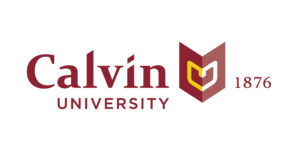
The Department of Nursing at Calvin University offers students the opportunity to learn in a highly regarded facility from faculty that have decades of experience working as nurses. The school offers a BSN with an early enrollment opportunity for high school students. Students learn about the latest in nursing technology and get the opportunity to learn at the best hospitals in the area as part of the curriculum. The curriculum prepares students to sit for and pass the NCLEX exam in order to gain state licensure. Students who decide to not pursue a BSN can transition to other healthcare programs offered by Calvin University.
Calvin University is a private Christian university that features a space-grant affiliation and is associated with the Christian Reformed Church. The school offers minors and majors in 109 academic fields that include engineering, business, nursing, social work, sociology, physics, astronomy, and psychology. Students who matriculate into Calvin University are required to take 45 hours of core classes that include religious studies and capstone courses that bring together the religious and secular portions of a degree program.
Programs: BSN
8. Northern Michigan University
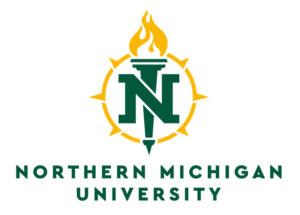
The School of Nursing at Northern Michigan University seeks to prepare students to excel at their work no matter what type of setting they work in. The nursing program helps students acquire expertise, knowledge, technical skills, and interpersonal knowledge. Degrees offered include a BSN, RN to BSN, practical nursing certificate, and a post-baccalaureate and post-master’s track for DNP. The RN to BSN program is both an online and in-person study. High school students can earn a spot in the nursing program through the Freshman Direct Admission Nursing Program.
Northern Michigan University is a public university and is part of Michigan’s public university system. A total of 180 undergraduate and graduate degrees are offered through five colleges that include Graduate Education and Research, Health Sciences and Professional Studies, Business, Arts and Sciences, and Academic Information Services. The school’s hockey team participates in the NCAA Division I and the rest of the school’s athletics teams participate in the NCAA Division II.
Programs: BSN, MSN, DNP
9. University of Detroit Mercy
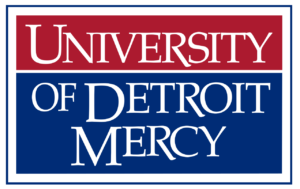
The McAuley School of Nursing at the University of Detroit Mercy focuses on providing nursing students with a practical scientific education along with learning how to work with underserved populations and treating patients as more than a set of symptoms. The school features small classrooms and provides full-time, part-time, and accelerated nursing tracks for a BSN or MSN degree. Other degrees offered include DNP and a post-graduate APRN certificate. Classes are in-person, online, or also hybrid.
The University of Detroit Mercy is a private Catholic university. The school has sponsorship from the Society of Jesuits and the Religious Sisters of Mercy. The school offers over 100 degrees from seven schools and colleges that include Liberal Arts & Education, Architecture, Engineering & Science, Law, Health Professions and Nursing, Dentistry, and Business Administration. The athletics teams participate in the NCAA Division I and in multiple conferences.
Programs: BSN, MSN, DNP
10. Hope College

The nursing program at Hope College combines faith with the science of nursing to produce nurses that have a strong scientific education and can offer compassionate care to patients, their families, communities, and more. Applicants are assessed on their grades and test scores alongside their potential for success in the program and what kinds of contributions a student can make to the school and as a working graduate. Classes take place in a state-of-the-art simulation lab and at different practicum sites. The program is designed to give students real-world experience as a nurse at the beginning of their second year and prepare students for eventual employment.
Hope College is a private Christian liberal arts college that features a space-grant affiliation. The school is affiliated with the Reformed Church in America. It offers over 90 majors that include Music, Arts, Science, Science in Engineering, or Science in Nursing. The student body averages an enrollment of over 3,100 students each academic year. The athletics teams compete in the NCAA Division III – MIAA conference.
Programs: BSN
How Do I Choose a Nursing School in Michigan?
The best schools for nursing in Michigan might be good for one person and not another. There are some junior colleges that offer certificates for nursing aides, for instance. There are four-year colleges to get a BA or MA in nursing to become a registered nurse. Nursing programs can also be gateways to things like being a nurse practitioner. The best schools for nursing in Michigan might be in your own backyard.
Depending on your situation, you may need something near where you are. You may be able to move and live on campus, or you may need one that has remote classes available. The best schools in Michigan for nursing won’t do you any good if they do not meet your needs as a student.
When you talk with school officials it is a good idea to have a list of questions to ask, so you can learn about whether the school is a good fit for your situation. Find out if online classes and remote learning are possible. It is also good to find out what practical training or internships they require or offer. Also ask about accreditation, as nearly all employers want people from accredited nursing programs in Michigan.
There are a lot of options out there for the nursing programs in Michigan for nursing. Finding the one that best fits you is the real challenge.
How is the Nursing Job Market in Michigan?
First, there is good news about nursing jobs in Michigan. Medical jobs are readily available and should stay that way for a while. There is currently a shortage of nurses in Michigan, so there are plenty of nurse jobs in Michigan to be had. However the downside is, that state officials predict there will be an abundance of nurses by 2030, and there will be fewer Michigan nurse jobs available.
In the near term, there is expected to be a 9.8 increase in registered nursing jobs in Michigan each year. Nurse practitioner jobs in Michigan are expected to increase by 16 percent each year.
Another angle is the different kinds of nursing and the various roles one can play with a nursing degree. The Bureau of Labor and Statistics says there will continue to be a high demand for specialized nurses, such as nurse practitioners, certified midwives, clinical specialists, and nurse anesthetists.
A shortage of nurses is good news for people wanting Michigan nurse jobs. A shortage also creates more need for travel nurse jobs in Michigan. Travel nursing jobs in Michigan involve a lot of travel. These nurses are temporary help for hospitals and other medical facilities. Travel nursing jobs are also fulfilling if you like to travel and take on new challenges.
How Much do Nurses Make in Michigan?
Nurses make a good salary no matter where they are, but nurses salary in Michigan is a little below the national average. Nursing salary in Michigan also varies greatly between major cities and small towns. Nursing salaries in Michigan, average $69,000, compared to the national average of 73,000. In Ann Arbor, nurses make above the national average at $74,630, but in the rural upper peninsula area, that salary is around $55,000. The cost of living is different too, however, so the earning power may not be that different.
Nurse practitioners’ salary in Michigan is an average of $102,000, and the national average is $107,000. This also varies a lot in the state. Ann Arbor is at the national average, as is Dearborn. The lower peninsula of the state has the highest pay for nurse practitioners at $118,000. The Niles, Bent Harbor area is the lowest at $93,000.
LPNs, or licensed nurses with two-year degrees, make $47,000 per year, and that is at the national average. However, LPNs in Detroit make $53,000, while those in the lower peninsula are at $36,000.
Registered nurses who are anesthetists have the highest Michigan nurse salary at $188,000. This is above the national average of $169,000. The lower peninsula area is the highest nursing salary in Michigan at $197,000 and Saginaw is the lowest at $189,000.
Related: